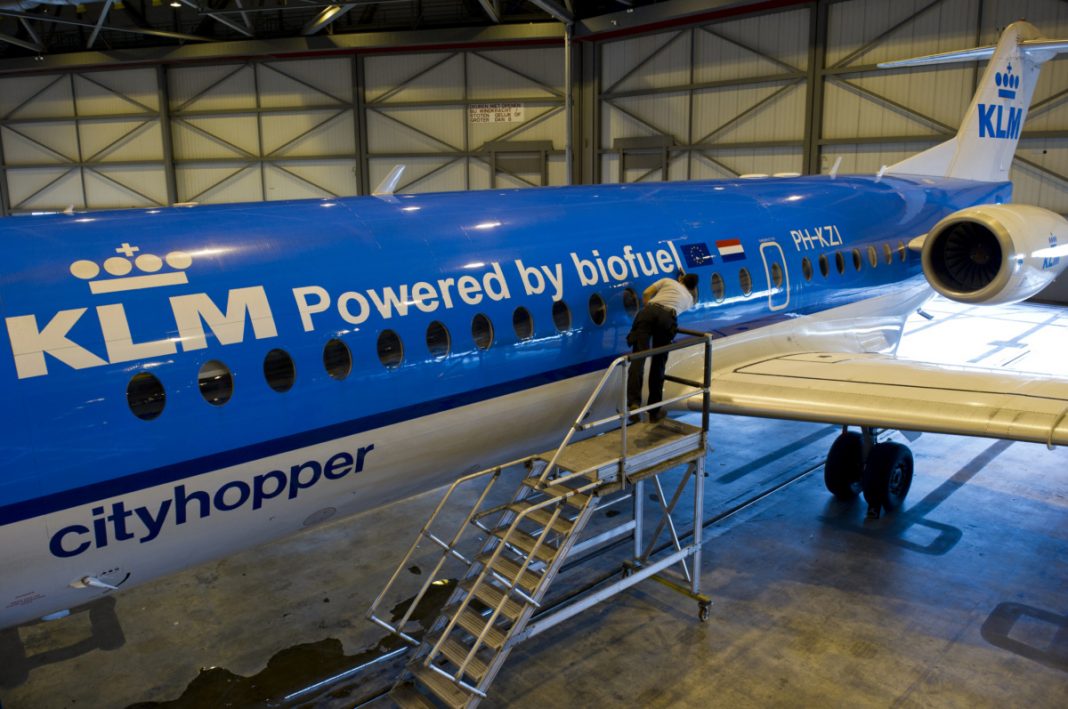The transition towards Sustainable Aviation Fuel (SAF) has been identified as one of the key factors in reducing greenhouse gas emissions across the industry. While current events may have drawn the immediate focus away from sustainability efforts, this does not mean that airlines’ commitments to biofuel have wavered.

In fact, more than 30 airlines over the world are now trialing or already deploying biofuel. Let’s take a look at some of the ones that have gotten the furthest, including an airport or two.
Mid-2020 quantum leap at SFO
Just this summer, the world’s largest producer of renewable diesel and SAFs, Finnish Neste, began supplying three major US airlines with biofuel for flights out of San Fransisco (SFO). In what the airport called a “climate quantum leap,” the sustainable fuel provider began delivering SAF to SFO via a pipeline.
Thus far, American Airlines, Alaska Airlines, and JetBlue Airways have signed on to use the fuel produced from waste and excess raw materials to partially power their flights from the airport.
Alaska Airlines
Already in 2011, Alaska Airlines flew 75 commercial flights powered by 20% biofuel. In 2016, it became the first carrier to operate a commercial flight with ATJ biofuel, which uses corn and forest residue feedstocks. Alaska Airline’s goal for 2020 was to use SAFs from at least one airport. With the Neste – SFO agreement, it seems to have hit that target.

KLM
KLM is also partnering with Neste to introduce SAFs to its general fuel supply at Schiphol Airport. The Dutch flag-carrier has agreed to purchase 75,000 tonnes of biofuel a year starting 2022. This will come from a new plant being constructed by SkyNRG, not far from KLM’s Amsterdam hub.
The airline also runs a corporate biofuel program, enabling businesses with a corporate contract to ensure that some of its company travel is undertaken using biofuel.
KLM is still the only European airline to use biofuel on intercontinental routes with daily flights between Amsterdam and Los Angeles. Although, Finnair did trial a biofuel blend on its Helsinki to San Fransisco route on a couple of occasions last year.

SAS
One of the biggest obstacles for airlines to transition to biofuels is their cost, which can be up to four times as much as conventional jet fuel. SAS Scandinavian Airlines has figured out a way around that by appealing to the evermore socially guilt-tripped Scandinavian air traveler.
Since September 2019, the carrier lets customers pay extra for biofuel. This can be done when booking the ticket or any time before departure, and aims to “give travelers the option to reduce their climate impact.”

United and Delta down for millions of gallons
In 2019, United began trialing biofuel with its “Flight for the Planet” from Chicago to Los Angeles, using 70% regular jet fuel and 30% biofuel. The same year, the carrier committed $40 million in investments into the acceleration of biofuel production. It also agreed to purchase up to 10 million gallons of SAF over the next two years.
United’s compatriot Delta Air Lines has also entered into an agreement to purchase 10 million gallons – per year. However, it has only set aside $2 million for SAF research.
Would you be willing to pay more if you knew that your flight was powered by more sustainable fuel? Let us know in the comments.
[ad_2]
Source link


